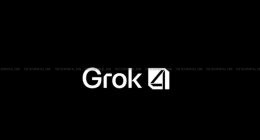If you’re a small business owner, there’s no doubt that accounting is one of the most important aspects of running your company.
Keeping track of your finances and keeping up with tax laws can be complex tasks to tackle on your own. That’s why many entrepreneurs turn to accounting software to make their lives easier.
There are many different types of accounting tools out there for small businesses, but some are better than others depending on what kind of company you operate and what features it needs from the software.
In this article, we’ll explore some options available on the market today so that you can find the perfect fit for your business.
-
Sage Accounting Tool
Sage is an accounting software tool that offers a variety of features for small businesses. Their tools are perfect for helping your company automate its finances and create customized reports based on your business structure, goals, and needs.
This program is suitable for a company that wants to take its finances to the next level by moving from simple spreadsheet-style programs to more advanced accounting software. If this sounds like the type of tool you need, go to their website for a free trial.
-
Pay Stubs Software
If you’re looking for a way to manage your company’s payroll, look no further than pay stubs software. This program is perfect for small businesses with employees because it makes creating and managing your workforce more manageable than ever before.
Nowadays, anyone can create a pay stub on their own. If you go online and check stub maker platforms, the instructions will guide you on the short steps to follow in generating one. It’s also possible to download and print it into a hard copy.
Any business owner who wants to track their employees’ earnings should look into a pay stubs software program. This type of accounting tool offers two key features you should be looking for.
For instance, it has the ability to make accurate payments because the system automatically calculates payroll taxes and notifies employees of any changes in their tax allowance.
-
QuickBooks Accounting Tool
The QuickBooks accounting tool is designed for companies looking for an easy-to-use program that’s compatible with other business software like Microsoft Office. Using this program, you can enter your company information, create invoices, and send them out to customers right from your computer.
The tool also sends emails when you receive new orders or make sales, which is convenient because it saves time checking your inbox to find out if something has changed.
One of the most significant benefits of QuickBooks is its ability to help you send out invoices and track receivables, which isn’t offered by all accounting tools for small businesses.
-
Xero Software
The Xero software is another excellent option for entrepreneurs looking to manage and track their financial information. This program helps you manage your accounts and transactions, allowing you to keep track of what’s coming in and going out of your business.
It also offers seamless bookkeeping features that make organizing your data online quick and simple.
Another good thing about this tool is its compatibility with other programs. It’s constantly being updated to work with the latest versions of software, so you have access to all of the benefits that come with these updates without purchasing a new version every few months.
Nowadays, there are so many different types of accounting tools for small businesses to choose from. It can be challenging to understand which one is right for you and your business needs. Most of them help in aspects such as payroll management and tracking of transactions. They’re also intuitive such that your team will hardly spend a lot of time learning them.




